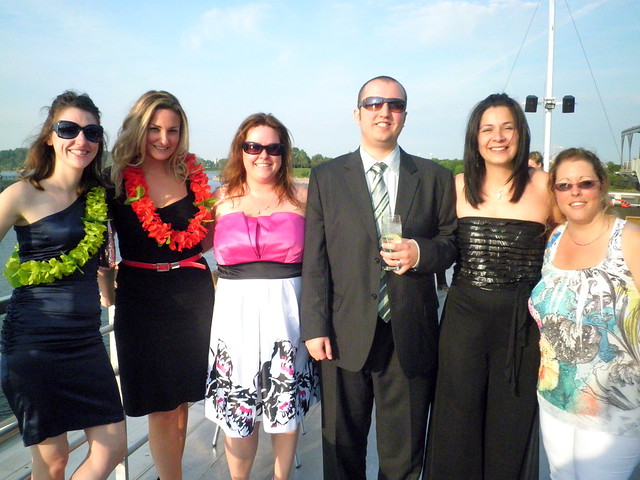We have a problem in the workplace, and it’s not Gen Y.
A while back I was thinking about “the challenges” Gen Y pose on the workplace. To those leaders who follow the latest developments or insights online of challenges we are facing, the concept of the challenges created by the “personality” or common traits of GenY are no surprise. It is everywhere. As someone in a hiring position, I value all my employees. Whether they be Gen Y or whatever. Everyone has value.
I believe it is important to understand what matters to employees, what motivates them, how you can create an attractive environment for them, and to use this information to provide a workplace that stimulates them on a professional and a personal level.
I see the value in examining some of the potential driving factors that make GenY different – but the problem is, I think some have taken this to a level where people are complaining about this group as difficult, or less desirable and allow themselves to be trapped in this thinking.
What’s Happening?
What is really happening is that leaders have a new challenge, the challenge of adapting to potentially new mindsets. The challenge is really no different than the same ones leaders face in communicating with or motivating anyone else. The difference is we just are not “used” to it. It’s change – change that leaders must evolve with.
The True Skill of Leader is Adapting to Needs of the Group and Organization
I tried to find a definition to show that the focus on the age group instead of the challenge is a dangerous one – it’s a type of discrimination. I could not really find one. So, I made one – and it pretty much states exactly what I want to relay here: Everyone has value. We need to look beyond these groupings to what each individual brings to the table. We need to look at our cultures (corporate) and make the fit. We need to understand that we as managers, leaders need to teach certain skills to our workforce – regardless of age. Employees are an investment, every single one will have challenges and we have to work with them – not complain about them – we have to manage change.
This isn’t rocket science – the art of being a good leader or manager, mentor, coach or even parent is about showing someone things that they have not yet learned – giving opportunities to use strengths, giving strategies to handle challenges. Being an example.
I work in an office with every age group represented – everybody can do well with guidance – every single person has strengths to bring to the table. It’s the diversity that brings success. I have one employee who just turned 70, she has been with the company for 37 years. She has evolved, adapted, uses computers, and surpasses everyone in her ability to adapt – imagine if I just let her “generation” guide what I thought of her. I dread the day she decides to retire. It’s not just Gen Y, its all the generations – you can’t judge a person or what they can do, or how they are by widespread generalities. These generalities are meant to give us an idea as leaders what challenges we may have to learn how to adapt to them. They are not meant to discourage and create fear.
It’s an open mind to embrace differences and grow together that makes for a company’s success and a good environment. Start going into relationships with Gen Y or any other “Gen” with preconceived notions of negativity and you are the one at a disadvantage. Start looking at the person, the individual.
Embrace all the awesome things our changing world brings us, that’s the key to success and where our focus must be – in business, in employee management, in recruiting. See the opportunity.
Call it as it is
My definition as listed in the Urban Dictionary, I hope that by defining it, we can move away from falling into this trap.
| Genrification | 2 thumbs up | |
|
Overgeneralizing generations in a workplace setting to the detriment of the organization and individuals.When a person guides their judgment of a person based on the age group they belong in, rather than making an individual assessment of that person’s qualities.Stereotyping based on year of birth.A backward thinking crutch paralyzing growth and innovation.
Susy was born in the 80’s, as a Millennial she is probably a diva worker, can’t come to work on time, wants too much and offers little skill. We might have a problem with her. (Genrification)Adam is from the Boomer Generation, he probably is not too comfortable with computers, we might have a hard time getting him up to speed. (Genrification)”We need to make sure that when we are looking at candidates for this new position we do not fall into Genrification. We need to assess each candidate based on their skills and how they interview, rather than assume that they will possess certain qualities or negative attributes based on the buzz we hear about their age group. Let’s keep an open mind. “
|
||
Moving Forward
Next time you hear someone making generalized statements that are derogatory about a generational group, how about we look at the ignorance behind that – who enters the workplace knowing everything? Try looking at it from your own developmental perspective – How will you adapt? Doesn’t everyone need some molding, and development?
It is scary for a leader to be in a position where their whole structure is threatened by a new type of thinking – it’s time to rise to the occasion, it’s time to up those leadership skills and face change.
Isn’t part of leadership being visionary?
Make it work – that’s the leader’s job.



Leave a Reply